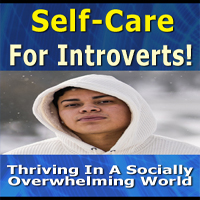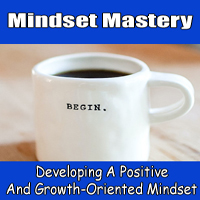


Unleashing Your Full Potential

Self-actualization is a term coined by psychologist Abraham Maslow in the mid-20th century to describe the pinnacle of human development. It's the realization of one's full potential and the desire to become the most that one can be. This concept represents a lifelong journey of personal growth, self-discovery, and achieving one's highest aspirations. In this article, we'll delve into the meaning of self-actualization, its key components, and how you can pursue it in your own life.
The Meaning Of Self-Actualization: Self-actualization is often described as the process of becoming the best version of oneself. It involves realizing and fulfilling one's talents, potential, and capabilities. At the core of self-actualization is the pursuit of personal growth, creativity, and a sense of purpose. It's about continuously striving to become the most authentic and fulfilled individual possible.
Key Components Of Self-Actualization:
Authenticity: Self-actualized individuals are genuine and authentic. They embrace their true selves, including both strengths and weaknesses, without pretense or self-deception.
Peak Experiences: Self-actualization is often associated with experiencing "peak moments" or "flow states" where individuals are fully engaged in their activities, often losing track of time and experiencing a deep sense of satisfaction.
Autonomy: Self-actualized individuals tend to be self-reliant and independent thinkers. They make choices based on their values and inner convictions rather than being overly influenced by external factors.
Creativity: A key aspect of self-actualization is creative expression. Self-actualized individuals often engage in creative pursuits, whether in the arts, sciences, or other areas, to express their unique ideas and perspectives.
Purpose And Meaning: Self-actualized individuals have a strong sense of purpose and meaning in life. They seek to contribute positively to the world and find significance in their actions and achievements.
Pursuing Self-Actualization:
Self-Reflection: Self-actualization begins with self-awareness. Reflect on your values, passions, and strengths. What activities make you feel most alive and fulfilled?
Set Meaningful Goals: Identify clear and meaningful goals that align with your values and aspirations. These goals should challenge and inspire you.
Embrace Challenges: Self-actualization often involves overcoming obstacles and challenges. Don't shy away from difficulties; see them as opportunities for growth.
Cultivate Creativity: Explore your creative side, whether it's through art, writing, problem-solving, or innovative thinking. Creativity is a powerful avenue for self-expression and self-actualization.
Continuous Learning: Never stop learning and expanding your knowledge. Self-actualization is an ongoing process of personal growth.
Seek Feedback: Don't be afraid to seek feedback from trusted individuals who can provide insights and guidance on your journey toward self-actualization.
The Benefits Of Self-Actualization:
Self-actualization is a fulfilling and enriching pursuit that can lead to several benefits, including:
Increased Satisfaction: Self-actualized individuals often report higher levels of life satisfaction and contentment.
Greater Resilience: The self-actualized are more resilient in the face of adversity, as they are better equipped to adapt and grow from challenges.
Deeper Relationships: Authenticity and self-awareness often lead to deeper and more meaningful connections with others.
Self-actualization is the lifelong journey of becoming the best version of oneself. It involves authenticity, creativity, autonomy, and a deep sense of purpose. Pursuing self-actualization can lead to a more satisfying and meaningful life, characterized by personal growth and the fulfillment of one's unique potential. It's a path worth exploring for anyone seeking a richer and more rewarding existence.






Introverts' Preferred Social Setting
 2. Authentic Conversations: In intimate gatherings, introverts relish the chance to have authentic conversations. These settings allow for more profound discussions and the sharing of personal thoughts and experiences. Introverts thrive in such conversations, as they appreciate the depth and substance they bring to social interactions.
2. Authentic Conversations: In intimate gatherings, introverts relish the chance to have authentic conversations. These settings allow for more profound discussions and the sharing of personal thoughts and experiences. Introverts thrive in such conversations, as they appreciate the depth and substance they bring to social interactions.
3. Active Listening: Introverts are known for their excellent listening skills. In intimate gatherings, they can truly shine as attentive listeners. Their ability to pay close attention to others, ask thoughtful questions, and provide support creates a nurturing and comfortable atmosphere for everyone involved.
A Path To Healing
 The Importance Of Closure
The Importance Of Closure
Closure is about finding resolution and emotional peace after a distressing event. In the context of betrayal and emotional turmoil, it allows individuals to process their emotions, acknowledge their pain, and eventually move beyond the trauma. Closure empowers you to take control of your life and not be defined by past hurts.
Steps To Finding Closure
Acknowledge Your Feelings: Begin by recognizing and acknowledging your emotions. Understand that it's normal to feel anger, sadness, and confusion after betrayal. Allow yourself to grieve and express these feelings.
Set Boundaries: Establish clear boundaries to protect yourself from further harm. Boundaries are essential for ensuring your emotional safety and preventing future breaches of trust.
Seek Support: Reach out to friends, family, or a therapist to share your feelings and experiences. Talking about what happened can be therapeutic and provide you with different perspectives.
Forgiveness: Consider forgiveness as a tool for closure. Forgiving doesn't mean condoning or forgetting the betrayal, but it's a means of releasing the emotional burden and letting go of the resentment that holds you back.
A Remedy To This Fast-Paced World
 One of the primary benefits of solitude is its ability to slow down the frantic pace of modern life. In a world that values constant activity, solitude encourages us to pause, breathe, and appreciate the stillness. It allows us to detach from the pressures of work, social obligations, and technology, offering a precious break that is essential for emotional well-being.
One of the primary benefits of solitude is its ability to slow down the frantic pace of modern life. In a world that values constant activity, solitude encourages us to pause, breathe, and appreciate the stillness. It allows us to detach from the pressures of work, social obligations, and technology, offering a precious break that is essential for emotional well-being.
Solitude fosters introspection and self-awareness. When we disconnect from the noise and demands of the external world, we can turn our attention inwards. This self-reflection allows us to understand our thoughts, emotions, and desires on a deeper level. It's an opportunity to explore our values, question our goals, and find our innermost aspirations.
Moreover, solitude promotes mindfulness. It encourages us to be fully present in the moment, to savor the simple pleasures of life, and to relish the beauty of our surroundings. This practice of mindfulness is a powerful antidote to stress and anxiety, contributing significantly to our emotional well-being.
Solitude also offers a respite from the pressure to be constantly productive. It is a space where we can let go of the need to accomplish and simply exist. This release of the constant drive for productivity can be liberating, reducing the stress and mental fatigue that often accompany our busy lives.
The Key To Success In Life And Work
 Components Of Emotional Intelligence
Components Of Emotional Intelligence
Emotional intelligence can be broken down into several key components:
Self-Awareness: This is the ability to recognize and understand one's own emotions, moods, and reactions. It's the foundation upon which other aspects of emotional intelligence are built.
Self-Regulation: Self-regulation involves managing and controlling one's emotions, especially in challenging situations. It enables individuals to respond to stress or conflict with composure rather than impulsivity.
Empathy: Empathy is the capacity to comprehend and share the feelings of others. It enables us to connect on a deeper level with friends, family, and colleagues, fostering better relationships.
Social Skills: Social skills encompass the ability to build rapport, communicate effectively, and resolve conflicts. People with high emotional intelligence tend to be excellent at working in teams and managing interpersonal dynamics.
Motivation: Motivation within the context of emotional intelligence refers to the drive to achieve personal and professional goals. It involves persistence, optimism, and the ability to stay focused on objectives.
The Importance Of Emotional Intelligence
Better Relationships: Strong emotional intelligence leads to more fulfilling and harmonious relationships.






 Growth Mindset: Those with a growth mindset see problems as opportunities for learning and growth. They embrace challenges, persevere through setbacks, and view failures as stepping stones toward improvement. Their focus is on developing skills and finding innovative solutions.
Growth Mindset: Those with a growth mindset see problems as opportunities for learning and growth. They embrace challenges, persevere through setbacks, and view failures as stepping stones toward improvement. Their focus is on developing skills and finding innovative solutions.
Influence On Creativity
Fixed Mindset: A fixed mindset can hinder creativity by limiting one's willingness to take risks. Fear of failure or criticism can stifle creative ideas and the exploration of unconventional solutions. People with a fixed mindset may stick to what they know, avoiding creative endeavors that might challenge their self-image.
Growth Mindset: A growth mindset encourages creative thinking. Individuals with this mindset are more likely to explore new ideas, take creative risks, and welcome feedback. They view challenges as opportunities to expand their creative abilities, leading to more innovative solutions.
Developing A Growth Mindset For Problem-Solving And Creativity
Recognize Fixed Mindset Patterns: The first step in developing a growth mindset is to become aware of fixed mindset patterns in your thinking. Identify when you're avoiding challenges, giving in to self-doubt, or feeling threatened by failure.
Embrace Challenges: Instead of shying away from difficulties, actively seek out challenges. Understand that confronting problems head-on is an opportunity to develop problem-solving skills and creativity.
View Failure As A Learning Experience: Shift your perspective on failure. Instead of seeing it as a reflection of your abilities, view it as a valuable learning experience that contributes to your personal and professional growth.
The Key To Unlocking Your Full Potential

Belief in oneself is not about being arrogant or having an inflated ego. It's about having a realistic and healthy self-assessment that acknowledges your strengths and weaknesses. It's about recognizing that you have the potential to learn, grow, and improve. Self-belief empowers you to take risks, face challenges, and push beyond your comfort zone. It fuels your determination and resilience in the face of setbacks.
This belief is not something that comes naturally to everyone. Many people struggle with self-doubt and insecurities, and developing self-belief is a lifelong journey. However, there are several strategies and practices that can help cultivate this belief in oneself.
Self-Awareness: Understanding your strengths, weaknesses, values, and passions is the first step. When you know who you are, you can set realistic goals that align with your true self.
Positive Self-Talk: Replace negative self-talk with positive and encouraging messages. Challenge your inner critic and replace self-doubt with self-affirmation.
Visualize Success: Visualization is a powerful tool. Envision yourself achieving your goals and picture the steps it takes to get there. This can boost your confidence and motivation.
Set Achievable Goals: Start with small, attainable goals and gradually work your way up. Each accomplishment builds your belief in your abilities.
Surround Yourself With Support: Seek out a supportive network of friends, family, or mentors who believe in you and your potential. Their belief can reinforce your own.
Learn From Failures: Instead of seeing failures as setbacks, view them as opportunities to learn and grow. Embrace challenges as stepping stones to success.